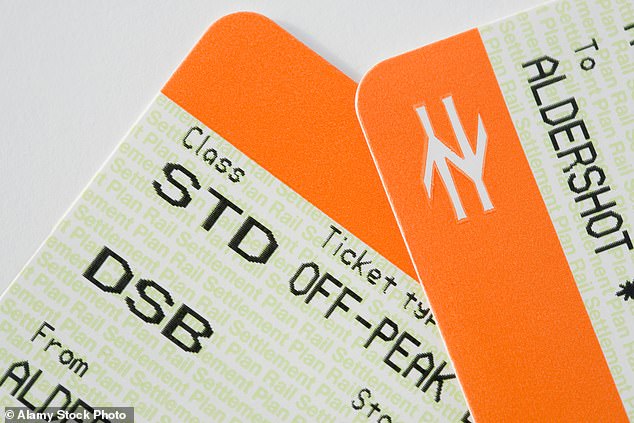Train passengers who are caught travelling without a valid ticket could find themselves with an unexpected criminal record, it has emerged.
A review published by the Office of Rail and Road revealed that even passengers who have mistakenly bought the wrong tickets for their journey could be prosecuted if their appeals against a penalty fare are rejected.
Penalty fares are handed by inspectors to passengers without a valid ticket while travelling and on National Rail services typically cost around £100 plus the full cost of a single fare for the journey. They can be appealed within 21 days of receipt.
But in some extreme cases, fines of up to £1000 can be brought forward if a person is convicted of travelling with the intent to avoid payment.
The rule change comes in a bid to clamp down on fare-dodging and was ruled by a judgement from the Chief Magistrate Paul Goldspring earlier this year.
An extract from the independent review reads: ‘In February 2025, the Chief Magistrate ruled on whether an unsuccessful penalty fare appeal provided protection from prosecution for certain fare evasion offences.
‘He ruled that criminal prosecutions can be brought following a penalty fare appeal being rejected.’
Christian Waters, 47, from Leeds, was targeted for prosecution in 2022 after he had an appeal for a penalty fare rejected and told The Telegraph that the ruling, which was until now private, should have been made public.

Train passengers who are caught travelling without a valid ticket could find themselves with an unwanted criminal record, it has emerged (Stock Image)
He said: ‘Why was this ruling not published, given it affects the protection of that hundreds of thousands of passengers would assume they had from the regulations?’
Mr Waters eventually had his case dropped after realising Northern Rail, a train company owned by the government, had broken their rules by trying to prosecute him at the time.
He says his avoidance of prosecution now feels like he ‘got off on a technicality’ and still disputes that their ticket machine was not working at the time.
The ruling at Westminster Magistrates’ Court, which was allegedly seen by the newspaper, came after the also government-owned Southeastern asked the court if previous convictions it had brought were lawful.
The newspaper last night reported that Judge Goldspring said: ‘It is clearly irrational that a person who brought an unmeritorious appeal could not be prosecuted, whereas someone who did not could be.’
Rules for commuters hit with penalty fares originally brought to the House of Commons had always sought to avoid seeing passengers criminalised.
Conservative peer Lord Marshall told Parliament in 1988: ‘If, however, a passenger on a train is not in possession of a ticket, he is not to be treated as a criminal under this bill.
‘He is simply asked to pay a penalty fare which is a civil penalty and not a criminal one.’
Regulation 11 (3) of the Railways (Penalty Fares) Regulations Act 2018 states that prosecution is only allowed where the penalty has been cancelled by the operator before the appeal panel has decided the outcome.
Judge Goldspring allegedly said in February that prosecutors ‘should not bring a prosecution if it is excluded’ and that there is ‘no obligation on the court to investigate whether the defendant has a defence’.
Private company Appeal Services handle all penalty fare appeals, and are paid by train operating companies to do so.
Its website reportedly says that four in five first-stage appeals were rejected in the last 28 days.
A Department for Transport spokesperson told MailOnline: ‘Deliberate fare-dodging costs the taxpayer up to £400 million annually – money which could be better spent on improving passenger experience.
‘This must be dealt with in a balanced manner, which is why Great British Railways will bring operators together to establish oversight and better standardise practices, putting an end to inconsistent prosecutions and making sure passengers are treated fairly.
‘We’re working at pace to simplify ticketing as part of our rail reforms, to alleviate confusion and make it easier for people to buy the right fare.’
They added that only a small number of prosecutions could see a person land a criminal record.
MailOnline also approached Southeastern for comment.












